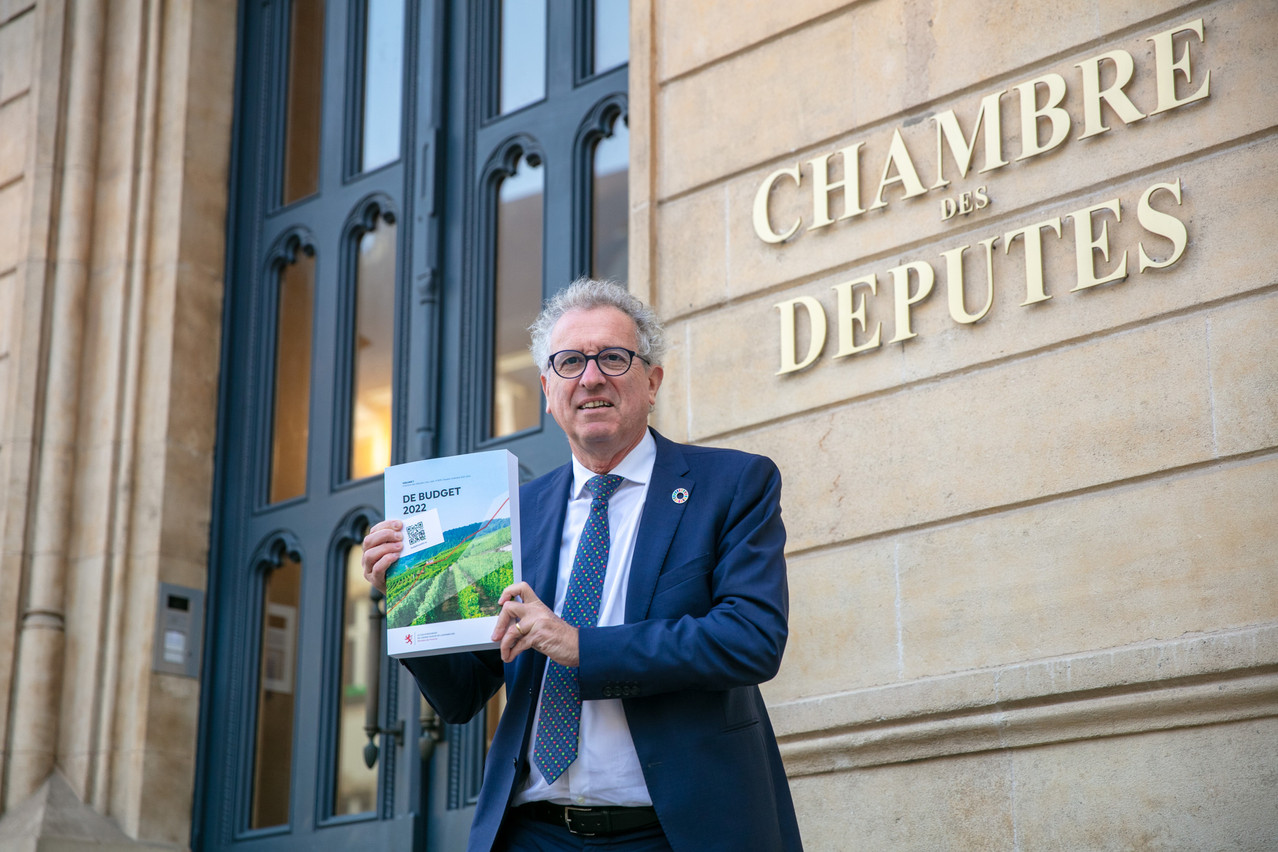“This is the moment to look to the time after the pandemic,” Gramegna said speaking in parliament. Here are key takeaways from the budget presentation:
- Deficit will shrink: Luxembourg in 2020 accrued a deficit of nearly €3.2bn because of the extra cost of the pandemic. This will shrink to €1.2bn next year. State debt will amount to 26.6% of GDP, below a coalition target of 30% and below an EU target of 60%.
- Upholding investments: The government will invest €3.1bn, or around 4.4% of GDP, for example in infrastructure and innovation projects. The government expects overall spending of €23.5bn compared to revenue of €22.3bn.
- More spending on climate: Luxembourg will spend €765m on climate and environmental policy next year, with this amount to rise to €975m by 2024, roughly doubling from 2019, when the government budgeted €445m on climate spending. Some €1.8bn are foreseen for the implementation of the national energy and climate plan. . “We are still speaking of climate change. Let’s open our eyes. We have been in a climate crisis for years,” the finance minister said.
- Rail and electric transport: As part of efforts to cut carbon emissions, €300m are planned for rail infrastructure in 2022, with €55.5m budgeted for the tram extension and €12.6m annually until for more electric charging stations until 2025.
- Increasing housing budget: A fund dedicated to housing development will receive €228.2m next year, up 77% compared to 2021. This comes after prime minister Xavier Bettel (DP) on Tuesday announced a property tax reform in a bid to crack down on real estate speculation. Another €27m are planned for a scheme in which the government provides subsidies to communes developing housing, the so-called Pacte Logement 2.0.
- 1,000 staff in education sector: The education budget will rise 10% next year to reach €3.1bn. This will fund the recruitment of 1,000 more staff in the sector as well as free maison relais daycare from the start of the 2022 school year, free school lunches for children from low-income families and free music education.
- Speeding up digitalisation: Between 2021 and 2025 the government is planning on spending €1.1bn in digitalisation. In 2022, this means €234m of investment, including projects on cybersecurity, 5G infrastructure and high-speed internet. “The pandemic has shown us once again how essential good and secure digital infrastructure is for our society and our economy,” Gramgna said.
- New fintech innovation hub: Together with the University of Luxembourg and the Luxembourg Institute of Science and Technology (List), the government plans on setting up a so-called Finnovation Hub. This comes at a price tag of €8.2m over the next ten years. The country’s innovation fund will receive €132m in 2022.
- Luxembourg in the world: The grand duchy will uphold cooperation and development assistance payments at 1% of gross national income. Gramegna also announced a Dublin embassy and said Luxembourg’s UN, Nato and OECD representations would grow.
- How it all adds up: Luxembourg’s overall budget is divided into three branches--communes, social security and the public administration. In 2022, communes are expected to operate with a surplus of €234m. The social security surplus should reach €853m. On the other hand, the public administration will run on a deficit of €143m.
“The best time to repair the roof is when the sun is shining,” said Gramegna quoting John F. Kennedy. “Now, where we can see the blue sky behind the clouds is the moment to face the big challenges of our time, the moment to strengthen our social net, speed up digitalisation, and tackle the challenges of climate change,” he said.
The budget will be debated by lawmakers in parliament over the coming weeks and will be voted before the end of the year. It is split into two parts, the 2022 budget and a multi-year outlook until 2025.
